Navigating the complexities of sea freight from China to Cameroon can be a daunting task for importers. With the increasing demand for cost-effective and efficient shipping solutions, understanding the ins and outs of this method is essential for businesses looking to expand their market reach. This step-by-step guide provides valuable insights into the advantages of sea freight, key considerations for shipping, major ports involved in the process, and a comprehensive overview of the shipping process itself. Whether you are new to international trade or seeking to optimize your logistics operations, this guide will equip you with the knowledge needed to ensure a smooth and successful shipping experience.
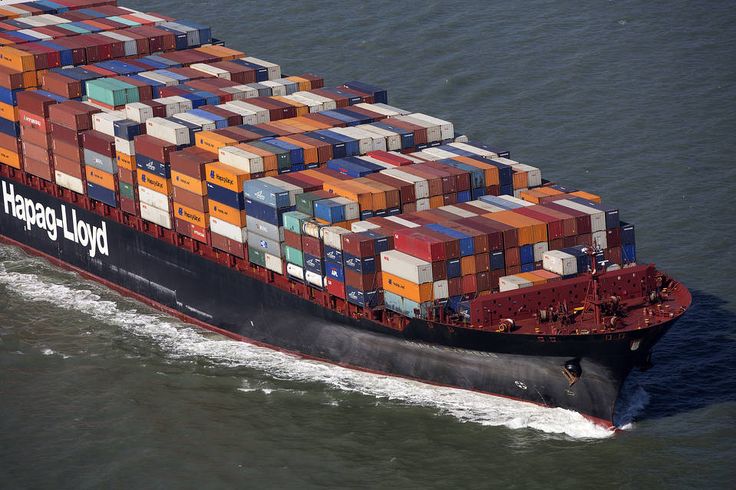
Understanding Sea Freight
Sea freight refers to the transportation of goods by ship, a method widely used for international shipping due to its cost-effectiveness and capacity to handle large volumes of cargo. This mode of transport is particularly favored for bulk shipments, heavy machinery, and oversized items that cannot be accommodated by air freight.
Choosing sea freight over other methods, such as air freight, offers several advantages:
-
Cost-Effectiveness: Sea freight is generally more economical, especially for large shipments. The cost per cubic meter is significantly lower compared to air freight, making it a preferred option for importers looking to reduce expenses.
-
High Cargo Capacity: Ships can carry a vast amount of cargo, from containers filled with consumer goods to heavy industrial machinery. This is an essential factor for businesses that need to import or export large quantities of products.
-
Environmental Impact: While all shipping methods have an environmental footprint, sea freight has a lower carbon footprint per ton-mile compared to air transport, making it a more sustainable option for global trade.
-
Versatility: Sea freight can accommodate a wide range of goods, including perishable items when transported in refrigerated containers, hazardous materials, and oversized freight.
-
Global Reach: Ocean shipping connects countries across all continents. This global network allows businesses to access a diverse marketplace, sourcing products from various regions, including China, which is often referred to as the world’s factory.
Benefits of Sea Freight for Importing Goods
The benefits of using sea freight for importing goods are substantial, particularly for businesses engaged in international trade:
-
Lower Shipping Rates: The lower shipping rates associated with sea freight can greatly benefit businesses, especially those with tight profit margins. Importers can save significantly on logistics costs, thus enhancing overall profitability.
-
Flexibility in Shipping Options: Sea freight offers various shipping options, including Full Container Load (FCL) and Less than Container Load (LCL). FCL is ideal for larger shipments, while LCL allows smaller shipments to be consolidated with other cargo, optimizing costs.
-
Reduced Risk of Damage: Shipping goods via sea often results in lower damage rates compared to air freight. Containers are securely packed, and the mode’s slower speed minimizes the jostling and handling that can lead to product damage.
-
Freight Tracking: Modern shipping companies provide advanced tracking options, allowing importers to monitor their goods in real-time. This transparency is crucial for businesses that rely on timely deliveries to meet customer demands.
-
Access to Specialized Services: Companies like Dantful International Logistics offer specialized sea freight services, including customs clearance, warehouse services, and insurance services, ensuring a seamless shipping process and peace of mind for importers.
Key Considerations for Shipping from China to Cameroon
When shipping from China to Cameroon, several key factors must be taken into account. Understanding these considerations can streamline the import process and ensure compliance with regulations.
Shipping Methods
Various shipping methods are available for transporting goods from China to Cameroon, with sea freight being the most common. Choosing the right method depends on several factors, including urgency, cost, and the nature of the goods being shipped.
- Sea Freight: Ideal for heavy and bulk shipments, providing cost-effective options for large cargo volumes.
- Air Freight: Suitable for urgent deliveries, albeit at a higher cost. This method is best for lighter packages that need to arrive quickly.
Shipping Routes
The primary shipping routes from China to Cameroon typically involve major ports. The most common routes include:
| Origin Port (China) | Destination Port (Cameroon) | Estimated Transit Time |
|---|---|---|
| Shanghai | Douala | 30-45 days |
| Shenzhen | Douala | 30-45 days |
| Ningbo | Douala | 30-45 days |
These routes are essential for importers to plan their logistics effectively. Factors such as port congestion, seasonal weather conditions, and shipping line schedules can impact transit times.
Required Documents
Importing goods into Cameroon requires several essential documents to ensure compliance with local regulations. Importers should prepare the following documents:
- Commercial Invoice: Itemizes the goods being shipped, including descriptions, quantities, and prices.
- Packing List: Details how the goods are packaged, including dimensions and weight.
- Bill of Lading: A receipt issued by the shipping company, confirming the shipment of goods.
- Import Permit: Required for certain goods, it ensures that the import adheres to national regulations.
- Certificate of Origin: Confirms the origin of the goods and may be required for customs clearance.
Customs Clearance
Customs clearance is a crucial step in the shipping process. It involves the submission of necessary documents to the customs authorities in Cameroon, where they will assess duties and taxes before allowing the goods to enter the country.
Importers must be aware of the following customs regulations:
- Duties and Taxes: Calculated based on the value of the goods, importers should factor these costs into their budgeting.
- Prohibited and Restricted Goods: Certain items may require special permits or may be outright prohibited. Importers should familiarize themselves with Cameroon’s import regulations to avoid delays or penalties.
- Engaging Customs Brokers: Utilizing professionals, such as customs brokers, can expedite the clearance process, ensuring compliance with all regulatory requirements.
By enhancing understanding of these critical aspects of sea freight and shipping processes, importers can effectively navigate the complexities of international trade. For a seamless shipping experience from China to Cameroon, consider partnering with Dantful International Logistics, which offers door-to-door shipping services and comprehensive customs clearance solutions tailored to meet your needs.
READ MORE:
- Shipping From China To Algeria
- Shipping From China To Angola
- Shipping From China To Morocco
- Shipping From China To Nigeria
- Shipping From China To Kenya
- Shipping From China To Tanzania
- Shipping From China To South Africa
Major Ports for Sea Freight
Top Chinese Ports for Exporting to Cameroon
China is home to several major ports that play a crucial role in international trade, particularly with Africa. The following ports are among the top locations for exporting goods to Cameroon:
| Port | Location | Main Features |
|---|---|---|
| Shanghai | Shanghai | The largest and busiest port in China, offering extensive shipping services and connections to global markets. |
| Shenzhen | Guangdong | A major hub for electronics and consumer goods, providing rapid export services. |
| Ningbo | Zhejiang | An important port for bulk cargo and containers, known for its efficient logistics. |
| Guangzhou | Guangdong | Close proximity to manufacturing centers, making it ideal for various exports. |
| Xiamen | Fujian | Specializes in textiles and machinery, known for its reliable connectivity to Africa. |
These ports are essential for businesses looking to source products from China to Cameroon, as they provide a range of shipping options and robust infrastructure.
Key Cameroon Ports for Imports
Cameroon has several key ports that facilitate the importation of goods from around the world. The most significant ports include:
| Port | Location | Main Features |
|---|---|---|
| Port of Douala | Douala | The largest and busiest port in Cameroon, handling the majority of imports and exports. It features modern facilities and extensive customs services. |
| Port of Kribi | Kribi | A deep-water port that can accommodate larger vessels, making it a strategic location for international shipping. |
| Port of Limbe | Limbe | A secondary port focusing mostly on oil and gas shipments, but also handles general cargo. |
| Port of Garoua | Garoua | Primarily used for inland shipping, connecting with the northern regions of Cameroon. |
These ports are pivotal for importers, providing access to a variety of goods and ensuring efficient customs clearance.
The Sea Freight Shipping Process Step-by-Step
To ensure a smooth shipping experience when importing goods from China to Cameroon, it is essential to understand the detailed process of sea freight shipping. Here’s a step-by-step guide:
1. Obtaining a Freight Quote and Booking
- Providing Shipment Details to the Freight Forwarder: Importers initiate the process by sharing critical information with the freight forwarder, including shipment weight, dimensions, type of goods, and desired shipping timeline.
- Agreeing on Shipping Terms and Rates: The freight forwarder will provide a quote based on the provided details. Terms such as Incoterms (International Commercial Terms), shipping method (FCL or LCL), and additional services will be discussed.
- Confirming the Booking: Once both parties agree on the terms, the booking is confirmed, and an official confirmation is sent to the shipper.
2. Cargo Pick-up and Delivery to the Port
- Arranging for Cargo Pick-up from the Supplier: The freight forwarder coordinates with the supplier to schedule the pick-up of the goods at their facility.
- Transporting the Goods to the Port of Departure in China: Once picked up, the cargo is transported to the designated port for loading onto the vessel.
3. Export Customs Clearance in China
- Submitting Required Documents: The freight forwarder will assist in preparing and submitting all necessary documents for export customs clearance, including the commercial invoice, packing list, and bill of lading.
- Paying Export Duties and Taxes: Any applicable fees must be settled before the shipment can proceed, ensuring compliance with Chinese regulations.
4. Loading and Ocean Transportation
- Loading the Cargo onto the Vessel: The cargo is loaded onto the designated vessel at the departure port. Containerization is standard, ensuring safe and efficient transportation.
- Transit Time from China to Cameroon: The estimated transit time for shipments from China to Cameroon typically ranges from 30 to 45 days, depending on the route and shipping conditions.
5. Import Customs Clearance in Cameroon
- Submitting Import Documents: Upon arrival in Cameroon, the freight forwarder will assist in submitting the necessary import documents to customs authorities, including the bill of lading and import permit.
- Paying Import Duties and Taxes: Importers must pay any applicable duties and taxes to facilitate the release of goods from customs.
6. Cargo Unloading and Delivery to the Final Destination
- Unloading the Cargo at the Port of Arrival in Cameroon: After customs clearance, the cargo is unloaded from the vessel at the port of Douala or another designated port.
- Arranging for Final Delivery to Your Warehouse or Facility: The freight forwarder can assist in coordinating transportation from the port to the final destination, ensuring that goods reach their intended location without delay.
By understanding this comprehensive shipping process, importers can navigate the complexities of international trade more effectively. Partnering with a reputable freight forwarder like Dantful International Logistics will ensure that goods are handled with expertise, from collection in China to delivery in Cameroon, providing a smooth and efficient logistical experience.
Shipping Costs from China to Cameroon by Sea Freight
Breakdown of Sea Freight Costs
Understanding the components of sea freight costs is essential for importers looking to budget effectively when shipping goods from China to Cameroon. The total cost associated with sea freight can be broken down into several key categories:
| Cost Component | Description |
|---|---|
| Freight Charges | The base cost charged by the shipping company for transporting goods. This is typically calculated based on the weight or volume of the cargo, often referred to as the Freight On Board (FOB) rate. |
| Fuel Surcharges | An additional fee that may be applied to cover fluctuations in fuel prices. This can vary based on the shipping line and current fuel costs. |
| Port Charges | Fees levied by ports for handling and processing cargo. This includes loading and unloading charges, as well as storage fees if the cargo remains at the port for an extended period. |
| Customs Duties and Taxes | Import duties and taxes imposed by the Cameroonian government on imported goods. These are calculated based on the value of the goods and vary by product category. |
| Insurance Costs | Optional but recommended, insurance costs cover any potential loss or damage to the cargo during transit. This is particularly important for high-value shipments. |
| Documentation Fees | Charges associated with preparing and submitting required shipping documents, such as the bill of lading, commercial invoice, and customs declaration. |
| Delivery Charges | If opting for door-to-door services, delivery charges will cover the transportation of goods from the port of arrival to the final destination within Cameroon. |
By breaking down these costs, importers can gain better visibility into their overall shipping expenses, allowing for more accurate budgeting and financial planning.
Tips for Reducing Shipping Expenses
To optimize shipping costs when importing goods from China to Cameroon, consider implementing the following strategies:
-
Consolidate Shipments: Utilizing Less than Container Load (LCL) services allows multiple shipments to be combined into one container, reducing overall costs. This is particularly beneficial for smaller shipments.
-
Negotiate Shipping Terms: Building a strong relationship with freight forwarders can provide leverage for negotiating better rates. Consider evaluating multiple quotes to determine the best price.
-
Choose the Right Shipping Method: For bulk shipments, Full Container Load (FCL) is often more economical than air freight. However, assess the urgency of the shipment to ensure the most cost-efficient method is chosen.
-
Optimize Packaging: Reducing the size and weight of packaging can lead to lower shipping costs. Efficient packing not only minimizes the volume of shipment but can also reduce the risk of damage during transit.
-
Plan Shipping During Off-Peak Seasons: Shipping rates can vary depending on the season and market demand. Consider planning shipments during off-peak times when rates may be lower.
-
Utilize Freight Insurance: While it may seem like an additional cost, freight insurance can protect against financial losses due to damage or loss of goods, potentially saving money in the long run.
By applying these strategies, importers can effectively manage and reduce their shipping expenses, maximizing profitability.
Shipping Times from China to Cameroon by Sea Freight
Port-to-Port Delivery
When it comes to sea freight, transit times can vary widely based on several factors. Understanding typical transit times between major port pairs can help businesses manage expectations and plan accordingly.
Typical Transit Times for Major Port Pairs
The following table outlines common transit times for sea freight shipments from significant ports in China to Cameroon:
| Origin Port (China) | Destination Port (Cameroon) | Typical Transit Time |
|---|---|---|
| Shanghai | Douala | 30-45 days |
| Shenzhen | Douala | 28-40 days |
| Ningbo | Douala | 30-45 days |
| Guangzhou | Douala | 30-44 days |
Factors Affecting Port-to-Port Delivery Times:
- Weather Conditions: Bad weather can cause delays in shipping schedules.
- Port Congestion: Busy ports may lead to longer loading or unloading times.
- Customs Procedures: Delays in customs clearance can affect overall transit times.
- Shipping Line Schedules: Different shipping lines have varying schedules, impacting delivery times.
Door-to-Door Delivery
Door-to-door delivery services encompass the entire shipping process, from the supplier’s location in China to the final destination in Cameroon. This method offers convenience and reduced logistical burdens for importers.
Transit Times for Door-to-Door Delivery
While door-to-door services often take longer than simple port-to-port operations due to the additional steps involved, they provide a comprehensive solution for managing shipments. Typical door-to-door delivery times from China to Cameroon generally range from 35 to 55 days, depending on factors such as:
- Distance from the Arrival Port: The final destination’s location relative to the port can influence delivery time.
- Local Transportation: Delays in local transport logistics after arriving at the port can extend delivery times.
- Customs Clearance: Timely customs processing is essential for minimizing delays.
Choosing to work with a reputable logistics provider like Dantful International Logistics can streamline the door-to-door process, ensuring timely and efficient delivery of goods while offering additional services like insurance and customs clearance. This comprehensive approach simplifies the complexities of international shipping and provides peace of mind for importers.
Dantful International Logistics Services:
- Dantful Ocean Freight Services
- Air Freight From China
- Amazon FBA Freight Forwarding
- WAREHOUSE Services
- One-Stop Customs Clearance Solution
- Cargo Insurance Services in China
- DDP Shipping Services By Dantful Logistics
- Out of Gauge Cargo Transportation Shipping Services
Frequently Asked Questions (FAQs)
1. What is sea freight, and why should I choose it for shipping goods?
Sea freight refers to the transportation of goods by ship and is often preferred for international shipping due to its cost-effectiveness, high cargo capacity, and lower environmental impact compared to air freight. It is particularly suitable for bulk shipments, heavy machinery, and oversized items.
2. What are the benefits of using sea freight for importing goods?
The key benefits of sea freight include:
- Lower shipping rates, especially for larger shipments.
- Flexibility with shipping options like Full Container Load (FCL) and Less than Container Load (LCL).
- Reduced risk of damage during transit due to stable shipping conditions.
- Availability of freight tracking and specialized services, such as customs clearance and insurance.
3. What shipping methods are available for transporting goods from China to Cameroon?
The primary shipping methods include:
- Sea Freight: Ideal for bulk and heavy shipments.
- Air Freight: Suitable for urgent deliveries but at a higher cost for lighter packages.
4. What are the typical shipping routes from China to Cameroon?
Common shipping routes typically involve major ports such as:
- Shanghai to Douala
- Shenzhen to Douala
- Ningbo to Douala
Estimated transit times for these routes range from 30 to 45 days.
5. What documents are required for importing goods into Cameroon?
Key documents needed for customs clearance in Cameroon include:
- Commercial Invoice
- Packing List
- Bill of Lading
- Import Permit (if necessary)
- Certificate of Origin
6. How does customs clearance work when importing goods into Cameroon?
Customs clearance involves submitting necessary documents to customs authorities, who will assess duties and taxes. Engaging customs brokers can expedite this process, highlighting compliance with regulations.
7. What are the main costs involved in sea freight shipping?
Sea freight costs typically include:
- Freight charges
- Fuel surcharges
- Port charges
- Customs duties and taxes
- Insurance costs
- Documentation fees
- Delivery charges (if using door-to-door services)
8. How can I reduce shipping expenses when importing goods?
To optimize shipping costs, consider:
- Consolidating shipments using LCL services.
- Negotiating shipping terms with freight forwarders.
- Choosing the appropriate shipping method for your needs.
- Optimizing packaging to minimize volume and weight.
- Planning shipments during off-peak seasons.

Young Chiu is a seasoned logistics expert with over 15 years of experience in international freight forwarding and supply chain management. As CEO of Dantful International Logistics, Young is dedicated to providing valuable insights and practical advice to businesses navigating the complexities of global shipping.











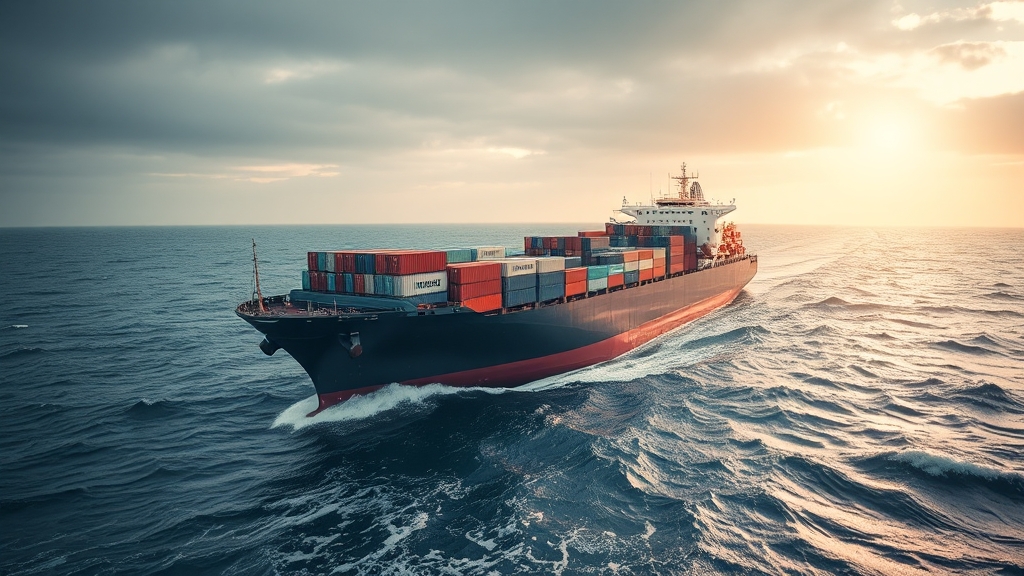
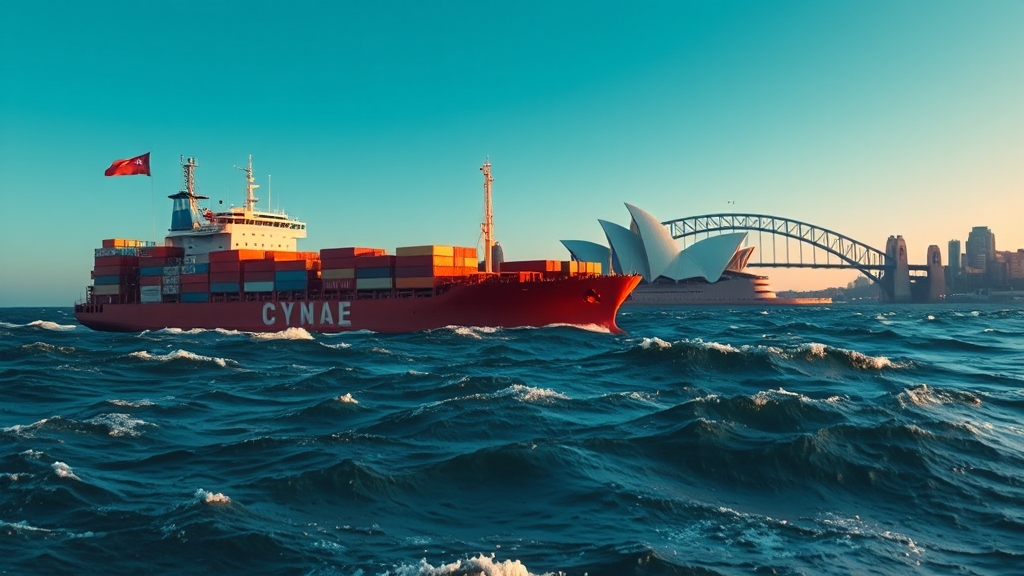
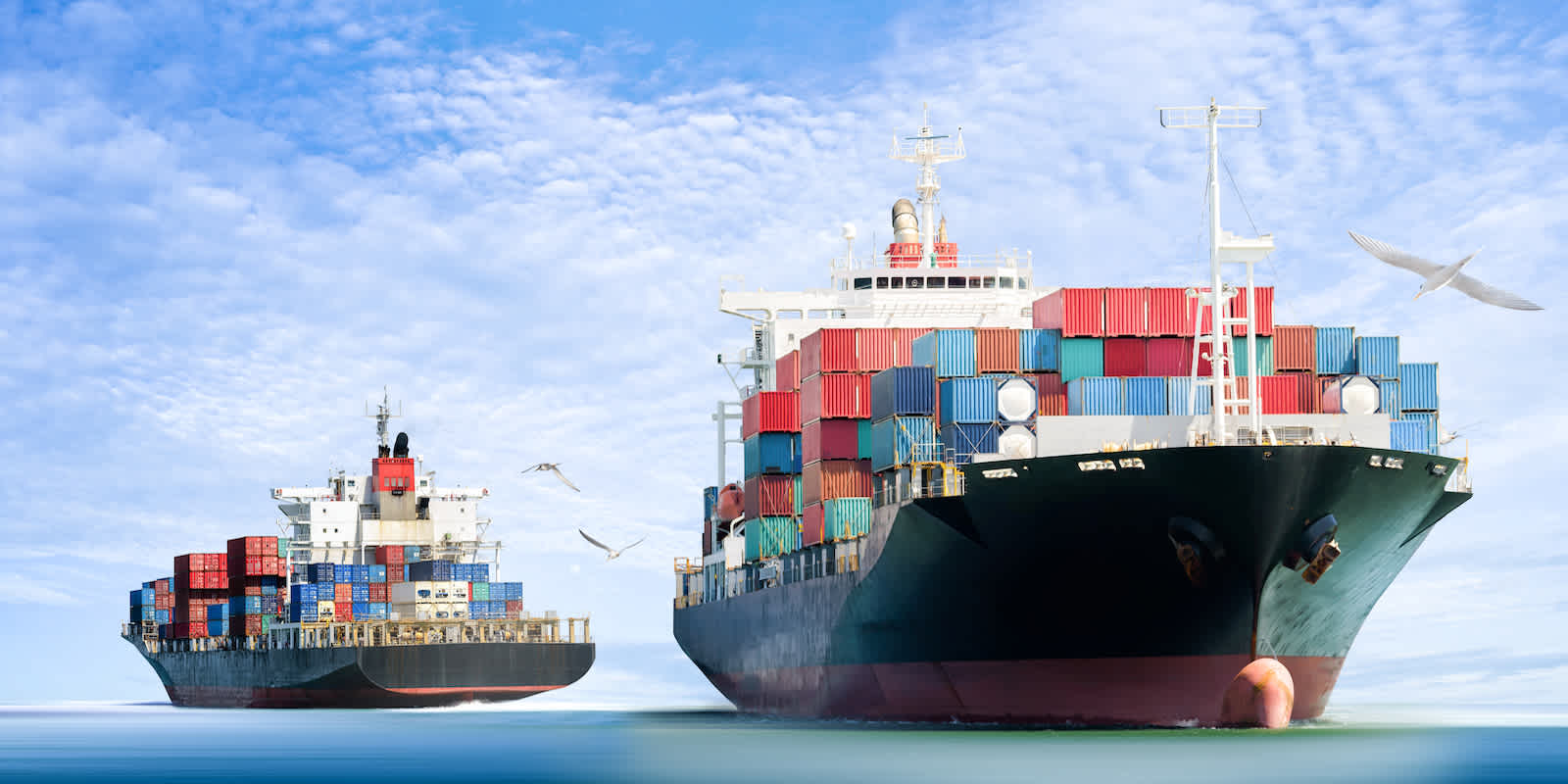
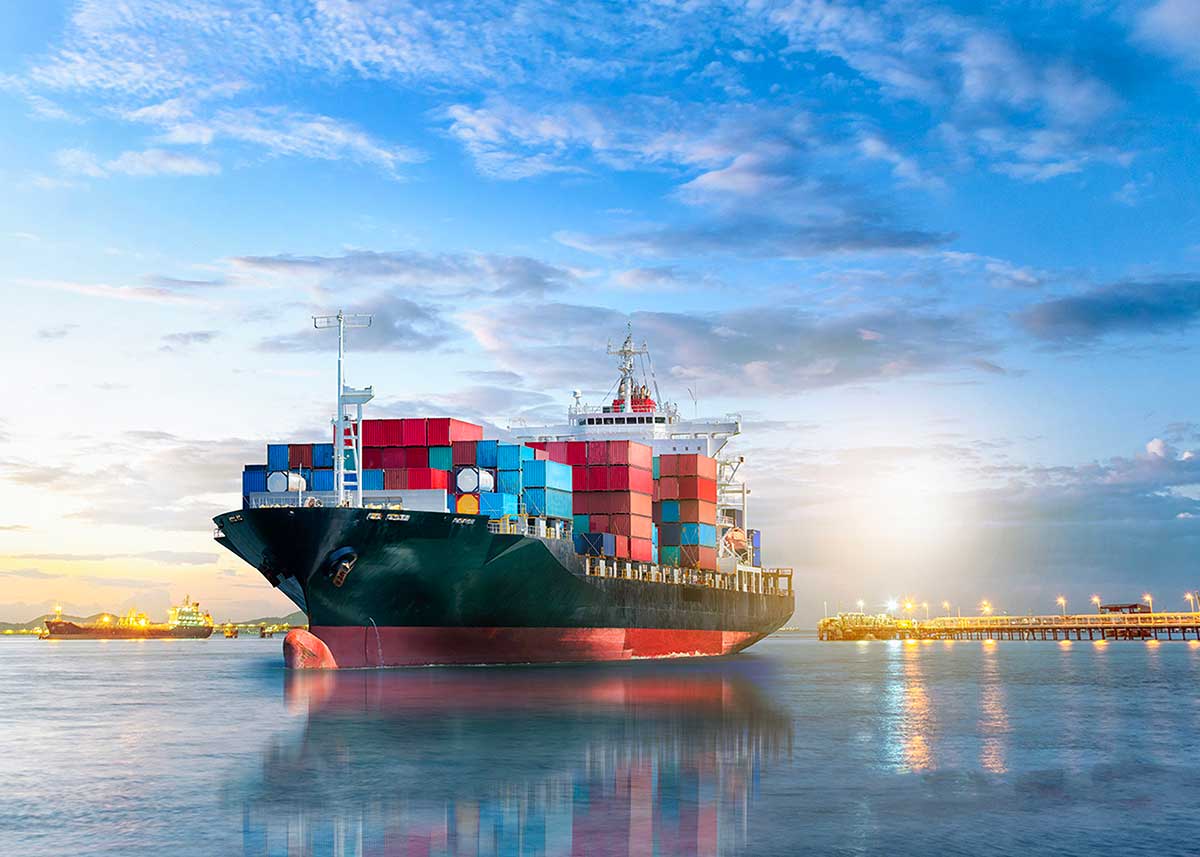
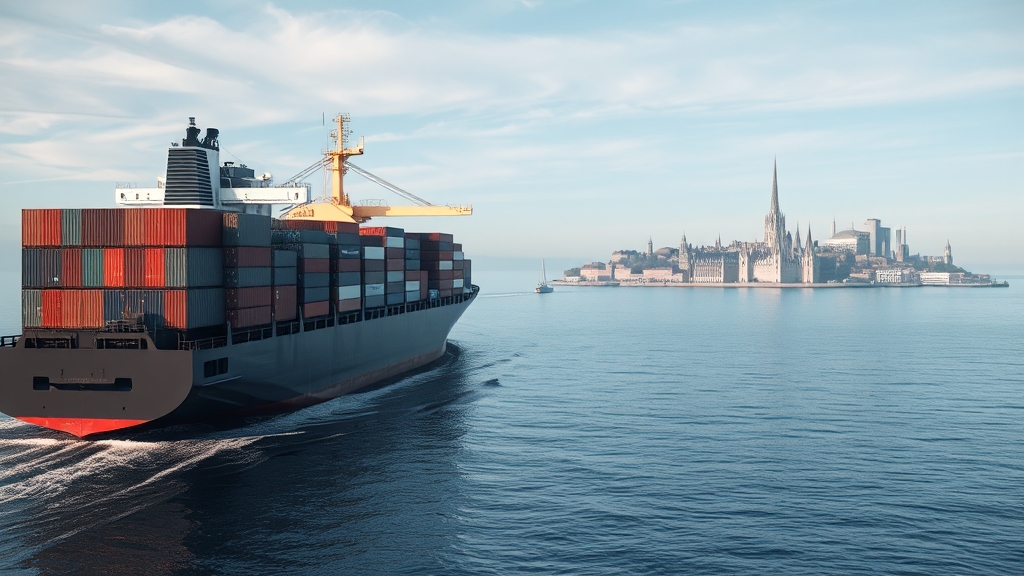





 Afrikaans
Afrikaans Shqip
Shqip አማርኛ
አማርኛ العربية
العربية Հայերեն
Հայերեն Azərbaycan dili
Azərbaycan dili Euskara
Euskara Беларуская мова
Беларуская мова বাংলা
বাংলা Bosanski
Bosanski Български
Български Català
Català Cebuano
Cebuano Chichewa
Chichewa 简体中文
简体中文 繁體中文
繁體中文 Corsu
Corsu Hrvatski
Hrvatski Čeština
Čeština Dansk
Dansk Nederlands
Nederlands English
English Esperanto
Esperanto Eesti
Eesti Filipino
Filipino Suomi
Suomi Français
Français Galego
Galego ქართული
ქართული Deutsch
Deutsch Ελληνικά
Ελληνικά Kreyol ayisyen
Kreyol ayisyen Harshen Hausa
Harshen Hausa Ōlelo Hawaiʻi
Ōlelo Hawaiʻi עִבְרִית
עִבְרִית हिन्दी
हिन्दी Hmong
Hmong Magyar
Magyar Íslenska
Íslenska Igbo
Igbo Bahasa Indonesia
Bahasa Indonesia Gaeilge
Gaeilge Italiano
Italiano 日本語
日本語 Basa Jawa
Basa Jawa ಕನ್ನಡ
ಕನ್ನಡ Қазақ тілі
Қазақ тілі ភាសាខ្មែរ
ភាសាខ្មែរ 한국어
한국어 كوردی
كوردی Кыргызча
Кыргызча ພາສາລາວ
ພາສາລາວ Latin
Latin Latviešu valoda
Latviešu valoda Lietuvių kalba
Lietuvių kalba Lëtzebuergesch
Lëtzebuergesch Македонски јазик
Македонски јазик Malagasy
Malagasy Bahasa Melayu
Bahasa Melayu മലയാളം
മലയാളം Maltese
Maltese Te Reo Māori
Te Reo Māori मराठी
मराठी Монгол
Монгол ဗမာစာ
ဗမာစာ नेपाली
नेपाली Norsk bokmål
Norsk bokmål پښتو
پښتو فارسی
فارسی Polski
Polski Português
Português ਪੰਜਾਬੀ
ਪੰਜਾਬੀ Română
Română Русский
Русский Samoan
Samoan Gàidhlig
Gàidhlig Српски језик
Српски језик Sesotho
Sesotho Shona
Shona سنڌي
سنڌي සිංහල
සිංහල Slovenčina
Slovenčina Slovenščina
Slovenščina Afsoomaali
Afsoomaali Español
Español Basa Sunda
Basa Sunda Kiswahili
Kiswahili Svenska
Svenska Тоҷикӣ
Тоҷикӣ தமிழ்
தமிழ் తెలుగు
తెలుగు ไทย
ไทย Türkçe
Türkçe Українська
Українська اردو
اردو O‘zbekcha
O‘zbekcha Tiếng Việt
Tiếng Việt Cymraeg
Cymraeg יידיש
יידיש Yorùbá
Yorùbá Zulu
Zulu